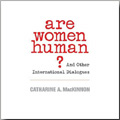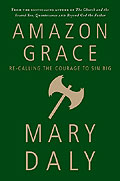 Women rallied [emphasis added]:
Women rallied [emphasis added]:
PARIS (AFP) — Calls to end forced marriage, domestic abuse and job discrimination marked International Women's Day on Saturday as demonstrators took to the streets worldwide.
The issues highlighted crossed a wide spectrum, including abortion rights in Italy, violence against women in Iraq and women hostages in Colombia.
Nearly 100 years old, the day marks the worldwide struggle for equal rights for half the globe's population.
Scores of women rallied outside a Baghdad hotel demanding an end to violence and equal social status with men.
"Stop neglecting women. Stop killing women. Stop creating widows," read a large banner that the women, from various ethnic and religious backgrounds, held at the Babylon Hotel in Baghdad's central Karrada neighbourhood.
In Afghanistan, President Hamid Karzai spoke out against forced marriages and said threats from a Taliban-led insurgency were keeping girls out of school.
"I call on religious leaders, tribal elders and particularly men: stop forcing your under-aged girls to marry, stop marrying them to old men," he said.
Up to 80 percent of Afghan women face forced marriage, and nearly two-thirds are married before the legal age of 16, according to the United Nations.
Events were also planned in neighbouring Pakistan, where "honour killings" of women and punishment gang-rapes have been widely reported.
Gatherings took place in India, Indonesia and China as activists pressed for an end to discrimination ranging from abortion of female foetuses to workplace bias.
Australian women's minister Tanya Plibersek said the occasion was a chance to acknowledge issues such as women's lack of financial independence.
"From the moment a woman enters the workforce she is likely to earn less than her male colleagues, regardless of her career, industry or level," she said.
Communist North Korea marked International Women's Day in its own way by urging its women to reject Western fashions and to "set good examples" in their clothes and hairstyles.
In Europe, job inequality, domestic abuse and abortion rights were highlighted.
Tens of thousands demonstrated in several Italian cities in favour of the right to abortion -- legalised in that country 30 years ago, but unexpectedly a hot topic ahead of April elections.
Nearly 2,000 people gathered in Warsaw over abortion rights. Poland, like Italy a heavily Roman Catholic nation, has one of Europe's most restrictive abortion laws.
A demonstration in France drew attention to French-Colombian hostage Ingrid Betancourt, seized by the Revolutionary Armed Forces of Colombia (FARC) in February 2002 as she campaigned for the Colombian presidency.
French President Nicolas Sarkozy called for an end to pay inequality between men and women, and pledged to institute financial sanctions to address the problem.
There were also reminders of persistent difficulties facing women on Saturday.
Two women were attacked in the northern South African province of Limpopo because they were wearing mini-skirts, public radio reported. A group of people surrounded them, pushed them and yelled for them to undress before the women took refuge in a nearby hair salon.
In eastern Democratic Republic of Congo, thousands of women protested to demand punishment for those who commit sexual violence, including rape.
"The law on sexual violence is not applied," said Esperance Katungu. "Women are often not informed of their rights."
Thousands in cities across the country are expected to mark the 100th anniversary of International Women's Day with parades, rallies and other events.
While some are celebrating the achievements of women over the past century, many say gender equality in Canada is still a long way off.
Helen Chilas, co-ordinator for the Canadian Voice of Women For Peace, says violence against women is still rife across the country.
And childcare worker Rochelle Dobas says women still make about 30 cents per dollar less than their male counterparts.
Where are the rallies in America?
On a sour note, Phyllis Schlafly of Eagle Forum spread her toxic opinion by condemning "the U.S. Government's endorsement of the worldwide feminist event, International Women's Day."
"The United States Government has no business supporting IWD," said Eagle Forum President Phyllis Schlafly. "The radical feminists know that they can't complain about American women because we are the most fortunate class of people who ever lived, so they search the globe for oppression in other countries using taxpayer dollars."
"The U.S. is joined by a crowd of sponsoring feminist groups who hide behind the guise of being the 'voice of women,' but instead promote such policies and ideals decried by the vast majority of American women, such as taxpayer-funded abortions," Schlafly said.
"These supporting organizations are the very ones who lobby for ratification of the United Nations Convention on the Elimination of All Forms of Discrimination Against Women, or CEDAW, which is basically a UN-imposed version of the Equal Rights Amendment," Schlafly said. "The U.S. Senate has yet to ratify this disastrous treaty ever since Jimmy Carter signed it in 1980, and rightly so."
"Today's feminists and CEDAW advocates view 'progress' as government-run day care, greater access to abortion, the elimination of 'Mother's Day' because it promotes an 'negative cultural stereotype,' decriminalization of prostitution in China, and government-mandated workplace benefits that men do not enjoy, just to name a few," said Schlafly. "Their goal is not equality, but preferential treatment."
"The radical feminists want to remake our laws in order to eradicate everything that is masculine from our culture and create a gender-neutral society," concluded Schlafly. "The United States should seriously reconsider lending its stamp of approval to future IWDs."
Can Schlafly be more out of touch with reality? The nutty stuff she spews just shows that misogyny springs from both sexes--men and women. What's the best response to Schlafly and her kind? Laugh! Laugh at her inanity. She's a joke and a dinosaur destined for extinction.
So let's celebrate while at the same time acknowledging the serious challenges women around the globe face. And most of all, let's stand strong for women's rights and work to end the violence and bigotry against them.
IMAGE: Through the Flower by Judy Chicago, acrylic on canvas, 1972.























|